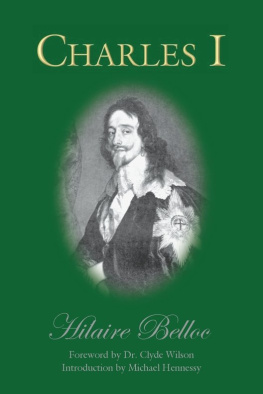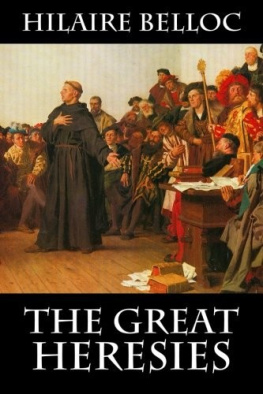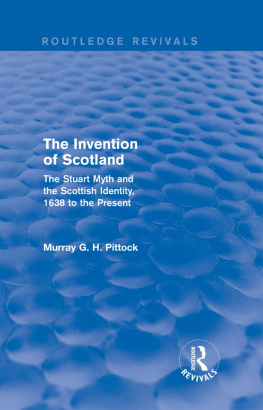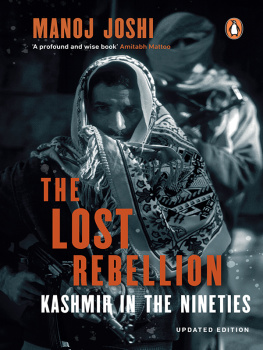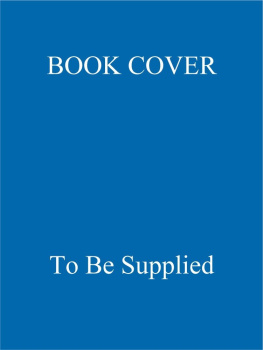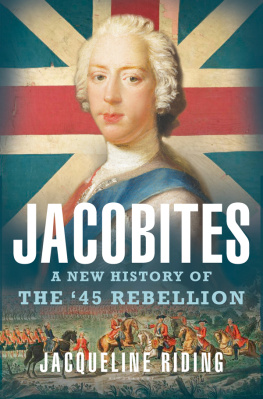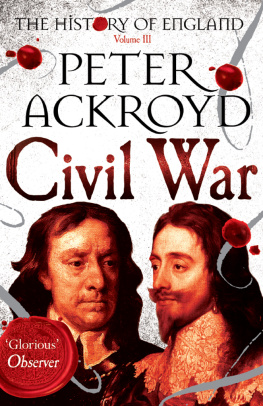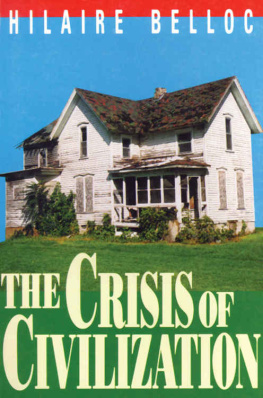Belloc - Charles I
Here you can read online Belloc - Charles I full text of the book (entire story) in english for free. Download pdf and epub, get meaning, cover and reviews about this ebook. City: Chicago, year: 2008;2012, publisher: IHS Press, genre: Religion. Description of the work, (preface) as well as reviews are available. Best literature library LitArk.com created for fans of good reading and offers a wide selection of genres:
Romance novel
Science fiction
Adventure
Detective
Science
History
Home and family
Prose
Art
Politics
Computer
Non-fiction
Religion
Business
Children
Humor
Choose a favorite category and find really read worthwhile books. Enjoy immersion in the world of imagination, feel the emotions of the characters or learn something new for yourself, make an fascinating discovery.
Charles I: summary, description and annotation
We offer to read an annotation, description, summary or preface (depends on what the author of the book "Charles I" wrote himself). If you haven't found the necessary information about the book — write in the comments, we will try to find it.
Belloc: author's other books
Who wrote Charles I? Find out the surname, the name of the author of the book and a list of all author's works by series.
Charles I — read online for free the complete book (whole text) full work
Below is the text of the book, divided by pages. System saving the place of the last page read, allows you to conveniently read the book "Charles I" online for free, without having to search again every time where you left off. Put a bookmark, and you can go to the page where you finished reading at any time.
Font size:
Interval:
Bookmark:
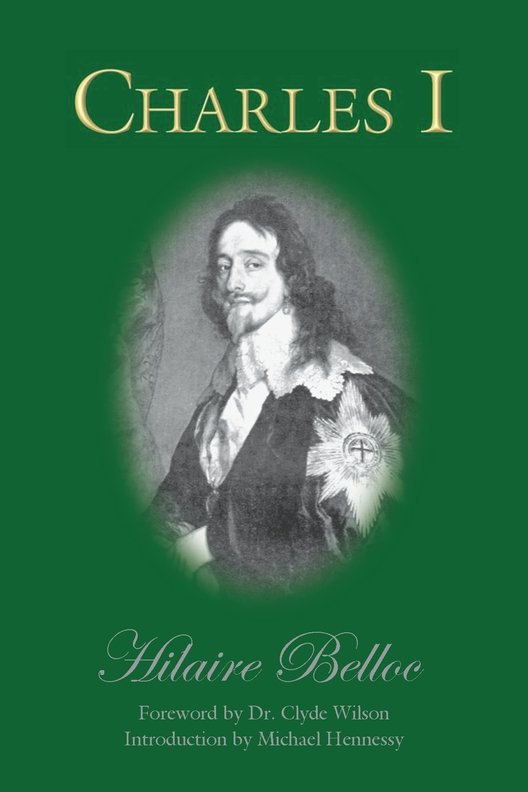
T HERE IS AN INSTITUTION AS OLD AS THE WORLD: MONARCHYKingship. In most places and in most times men have agreed to be governed by Kings, having found in such government something consonant to their nature.
In one man there seemed to stand incarnate all the men of the community and to be concentrated in him their common weal. He was the visible symbol of their unity.
Today all Christendom is hungry for monarchy. In the United States, partly by the provision of the Constitution, more by its development in the nineteenth century, the principle of an executive in the hands of one man was preserved. But in Europe it was gradually lost, and replaced by the rule of a few; in practice, of the rich, under the guise of representatives. That experiment is breaking down before our eyes, and monarchy is returning.
Why and how was it lost? The first great western country to lose it was England. In England a rebellion three hundred years ago deposed and killed the King. Thenceforward the wealthier classes who had raised that rebellion gradually ousted the Crown and took over its power. How and why did English kingship so fail in the person of its last possessor, Charles Stuart? That is the problem approached in this book.
From before the beginning of all record, for centuries upon centuries, the people of Britain had known no other rule. When they had been divided into warring tribes, each tribe or city had its King; when they had formed part of the high Roman civilisation they looked to one mighty monarch above them in the person of the Emperor; when they fell back again, during the Dark Ages, into half a hundred clans or groups of various tongue and religion, yet each unit among them had its King. When the greater part of the island slowly reunited under the term England, a common monarchy re-aroseand there was a King of England in whom communal authority and action was vested; he reigned in the south, from Winchester or Westminster, unquestioned for eight hundred years. The dynasty would change, by marriage or by force of arms; the territory over which it ruled would expand or diminish, the office was held by weak hands and by strong imperilled when it passed to a child or when powerful subjects rebelled against it, yet always surviving and taken for granted as the air which men breathed.
During the Christian centuries after the conversion of the Pagan Roman Empire kingship began in each province of Christendom to take on a mien still more exalted and, as it were, sacramental. It had inherited from Rome the sense of majesty, the awe and worship of that authority by which men lived, and already in the last of the Pagan Imperial Courts the Emperor was something divine. But with the triumph of the Christian system in the Dark and Middle Ages something more intimately religious entered into that central idea; the King was anointed as well as crowned; he was sacred through these symbols, which were endowed with an effective power.
It was in France that this majesty of kingship took on its colours and began to shine, and from the crownings and anointings at Rheims the spirit spread throughout the west. Over England that spirit lay with as profound an effect as over any princedom among Christian men. It must be the first priest in England the Archbishop of Canterbury who should anoint and crown the King claimant; only after that stamp of religion had been set was he King indeed. From him proceeded all acts of government and control; in his name was the peace preserved; he was the framer of national policy; he appointed to every national office; by him alone could be created a special title of nobility, and by him were the armies summoned and led.
All Europe and particularly England was in this mood, because England was upon a scale which helped her to be singularly united. The King of France held a double power direct over his own lands but shadowy over his great vassals; the little realms that were growing up beyond the Pyrenees, as the land of Spain was slowly reconquered from the Mohammedan, had each their King but were each for centuries too small to weigh heavily in the balance of Europe. For a time there had been a King vaguely over the Germans, but longsince, almost from the end of the Dark Ages, the chieftains of the various German districts had alone really ruled. In Italy the cities and principalities and the territory of the Papal monarchy were similarly divided. But in England kingship was firmly welded, after a model suited to it, having a territory not too large for central rule yet of an extent wide enough to make the realm a principal factor in the business of Europe.
So things had been in the minds of men for centuries; kingship went back long beyond all tradition.
A child born in the turn of the sixteenth and seventeenth centuries, at the end of the year 1600, was to inherit this hitherto unquestioned office, and apparently to inherit it undiminished in reputation or effect. He was to come to the kingship of his fathers in true descent of the Blood Royal, and, destined as it would seem, to administer as those before him had administered and to hand on this same power and majesty to his posterity. Yet in the lifetime of that child and it was not a long one monarchy in England crumbled, or rather was destroyed. He himself acted that tragedy and took the tragic part therein. First he was thwarted by his more powerful subjects through his early years, from the day when as a young man of twenty-five he came to his own after his fathers death. Next they took arms against him, when he had not long passed his fortieth year. They gradually destroyed his national forces, they triumphed over him, they belittled him by one humiliation after another, and at last, before he had reached his fiftieth year, they put him to death. With him died the English monarchy he was the last ruling King of England, the last who governed as Kings had governed for untold years.
This child so born in 1600, and so destined to see the tragic close of all for which he had stood, was Charles Stuart.
Why did so mighty a change come upon him and upon his office, and in his time? How did a revolution so complete, and, as it would seem, so improbable and unprepared, come to so rapid a conclusion with himself for the victim?
Two elements combine in all such problems: Circumstance; and the Character of the Man. The Circumstance, when we shall have probed it to its depth and comprehended it in full, exhibits a process apparently inevitable. Men are tempted to say when they know whatforces have been at work to produce some astonishing historical thing, I now see that it could not have been avoided, and that no matter who had been there he would have suffered the same fate. But this is a mechanical illusion, for there is also present the factor of personality.
It is not conceivable that another character seated on Charles Stuarts throne would have lived to see the monarchy at his death what it had been at his birth; but it is true that there were those qualities in the man which by their temper, rather than their proportion, of strength and weakness, not only rendered the evil more certain but gave it the shape it took.
It was not only fate, it was also something in Charles Stuart himself his virtues mainly which destroyed the Crown of England and the power thereof.
It behoves us then as we approach this great story first to see as clearly as may be what the Circumstance was how monarchy and its society stood in that year 1600 in England, and why there lay within the structure of the community, as it then was, the forces that would bring down the Throne. Only when we have thus understood the Circumstance can we proceed to the Character and its development in life; only then can we observe how that Character reacted to such Circumstance, how the Circumstance thwarted and constrained the Character, and led it down the paths to sudden death.
Font size:
Interval:
Bookmark:
Similar books «Charles I»
Look at similar books to Charles I. We have selected literature similar in name and meaning in the hope of providing readers with more options to find new, interesting, not yet read works.
Discussion, reviews of the book Charles I and just readers' own opinions. Leave your comments, write what you think about the work, its meaning or the main characters. Specify what exactly you liked and what you didn't like, and why you think so.

